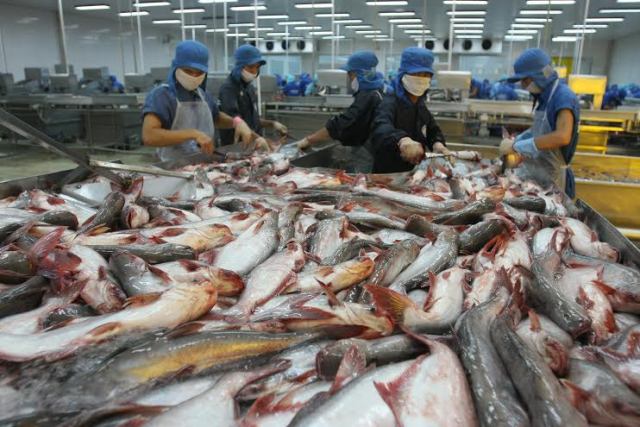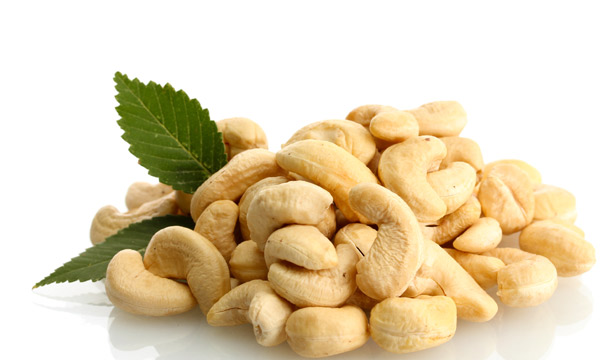Export of agricultural and aquatic products is “tired” to enter the US
Startled with 1,000 businesses denied entry into the US
Thousands of denied exports to the US have been released at the Global Food Safety Forum, titled “Developing Markets for Vietnamese Goods”, by the American Chamber of Commerce in Vietnam. (AmCham Vietnam) and the Vietnam Association of High-quality Enterprise Enterprises, has made many people startled.

As Vietnam’s largest export market, new regulations on exports to the US should have received special attention from businesses, but that’s not the case. This makes Vietnamese exports to the US more grumpy.
Mark Gillin, vice president of AmCham Vietnam, said that in December of this year, 1,845 food plants in Vietnam were registered with the FDA for export to the US market, This reduced to only 806 factories.
“As more than 1,000 Vietnamese companies do not know this new regulation, they have not renewed their registration, so they are out of the list and now they can not export products to the US,” AmCham Vietnam confirmed.
In the first eight months of 2017, the country’s merchandise exports reached $ 133.5 billion, an increase of 17.9% over the same period of 2016, of which the US remains the largest export market of Vietnam with turnover of 8 May reached $ 27.2 billion, up 9.7%.
Nonetheless, it is increasingly difficult to export to the United States because of the stringent provisions of the FSMA.
FSMA has the core of moving the focus from tackling food contamination to food contamination prevention. This law is not only concerned with end-of-line quality checks, but also details the chain of food production, from farm to table.
The law also requires importers to participate in the Foreign Suppliers Examination Program (FSVP). That means units in the US want to import will have to examine more carefully the source of goods from Vietnam than before.
In the past seven months, the US Food and Drug Administration (FDA) has issued 32 warnings to Vietnamese enterprises that have exported goods to the United States because they do not catch up to date in the United States. change US import policy.
Unlike voluntary standards, compliance with FSMA regulations is mandatory for Vietnamese businesses if they still want to export to the US.
Agricultural products, seafood are tired
Agriculture, fisheries and food products have significant export value to Vietnam in trade with the United States.
Vietnam export and import report in 2016 said that Vietnam is exporting many agricultural products and seafood to the US such as: frozen shrimp, fillet pangasius, processed tuna, crab meat cashew nut, cashew nut, pepper, etc., with US $ 3 billion worth of exports of agricultural and aquatic products (including processed products), of which $ 1.44 billion is aquatic products courtyard.
At the scale of the sector, agriculture, fisheries and food now account for about 46% of Vietnam’s workforce, bringing significant export value to Vietnam, with the fishery sector alone earning $ 7 billion. Vietnam’s export turnover in 2016
Although the import value of agricultural products and seafood of the US is very large and tends to increase, especially canned tropical fruits and vegetables; However, the growth rate of this group’s export turnover in Vietnam in the next few years may not be high.
The reason is that two main export items are shrimp and catfish are subject to anti-dumping and anti-subsidy tax and restricted to consumption in some states.
More seriously, with many of the mandatory provisions of the FSMA, experts are concerned that a lack of knowledge of the new regulations could cause a significant decline in Vietnam’s agricultural and food exports. into the US in the future.
In fact, there have been shipments of agricultural and aquatic products exported from our country returned from the United States. According to the United States Food and Drug Administration (FDA), in the first four months of 2016, 95 containers (equivalent to over 1,700 tons) of US rice were returned, mostly jasmine jasmine rice, broken rice jasmine, brown rice and high quality white rice.
The US is Vietnam’s potential rice market, but this is a high quality market, with many technical barriers. Consequently, many shipments of rice exported to the United States were returned due to contamination of pesticide residues and violate the country’s food safety requirements.
Mr. Vu Van Tam, Deputy Minister of Ministry of Agriculture and Rural Development, said that 2016 – 2017 is an important time for implementation of action programs on food safety, especially production and business organizations. agro-based food products and food chain linkages between producers and businesses and markets.
“Enterprises need to enhance law enforcement such as the Law on Food Safety, Veterinary, Seafood ….” To have export routes to the US, there is no other way, “said Deputy Minister Vu Van. Eight insist.
(According to baodautu.vn)




